The cataclysmic events of World War II at once revealed the very worst and the very best of human nature, so it is little wonder that this dramatic moment in world history has inspired so many fiction writers from different nationalities and backgrounds.
These 24 World War II novels reflect this rich diversity, ranging from epic family sagas and thrillers set on British soil to gripping fights for survival in Germany, Poland and the Aleutian Islands, as well as alternative histories and an evocative look at the struggle for racial equality in the heat of battle.
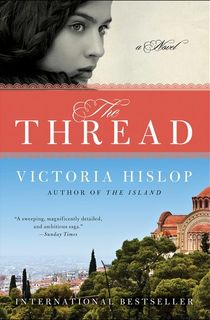
The Thread
This “sweeping, magnificently detailed and ambitious” family saga (Sunday Times) from author Victoria Hislop has at its heart a compelling love story that endures for over eight decades in the midst of one of the most turbulent periods in Greek history.
Following the capture of Thessaloniki by the German army in April 1941, Dimitri and Katerina Komninos witness first-hand the devastating destruction of their once peaceful multi-cultural city at the hands of the brutal Nazi regime. Yet they elect to stay and keep alive the memories of those who have no choice other than to leave. Years later, the couple’s young Anglo-Greek grandson hears their remarkable story for the first time, leading him to question his own life choices.
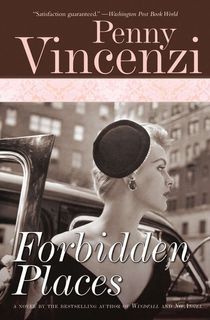
Forbidden Places
The lives of three English women are changed forever when war breaks out in 1939. Newly-wed Grace finds herself trapped in a loveless marriage but, in her husband’s absence on active service, learns to embrace new opportunities. Meanwhile her sister-in-law, Florence, embarks on an affair to escape her own difficult marriage, with disastrous consequences. The glamorous Clarissa, who was previously engaged to Grace’s husband, is now in an exciting new relationship, but her world is torn apart when the man of her dreams is badly scarred in a plane crash.
Penny Vincenzi excels at recreating life on the 1940s British home front in this fast-moving novel, which is packed full of unexpected plot twists.
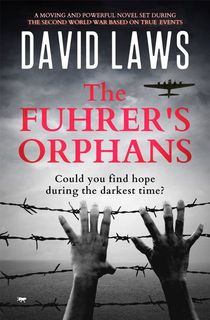
The Fuhrer's Orphans
Inspired by real-life events, this evocative novel tells the story of two strangers united by the plight of a group of Jewish homeless children, who have been left to fend for themselves in a Munich railyard after their parents are sent to the Nazi concentration camps.
A young schoolteacher, Claudia Kellner, risks her own life to care for the scared children. Peter Chesham, an undercover British Commando, has been given orders to destroy a military installation close to their hiding place. Together Claudia and Peter decide to attempt a seemingly impossible rescue mission in order to transport the children to safety.
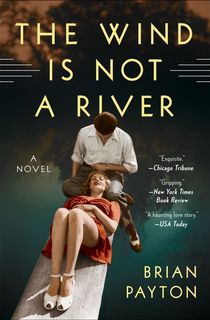
The Wind Is Not a River
Described as “a haunting love story wrapped in an engaging and unsettling history lesson” (USA Today), Brian Payton’s gripping novel is set against the real-life backdrop of the only World War II battle to take place on American soil.
In April 1943, journalist John Easley heads north in search of the truth about the rumored Japanese invasion of Alaska’s Aleutian Islands. When his plane is shot down, he is faced with a desperate fight for survival in the Alaskan wilderness as he battles to evade capture by the Japanese. Back home in Seattle, his beloved wife, Helen, struggles to cope with the news of his disappearance and decides to embark on her own extraordinary mission to find her missing husband.
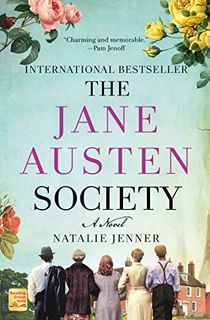
The Jane Austen Society: A Novel
Chawton, post WWII. The once-home of Jane Austen, the small English town is now home to a few of the author's distant relatives and the diminishing family estate.
Following the second great war, the people of Chawton need something to hang on to. It's then that they decide to preserve Jane Austen's legacy and home. Though they're a disparate group—the local doctor, a movie star, and young widow, and more—they're all united in their love of Jane Austen. And as they each deal with their personal struggles, they come together to form the Jane Austen Society.
.jpg?w=640)
The Nightingale
Vianne Mauriac has no choice but to give up her home to a German captain when their small town in France is requisitioned by Nazi troops. Meanwhile, her younger sister Isabelle finds herself in the midst of the French resistance, throwing herself into harm’s way to fight the Nazis from inside France. The Nightingale is a moving story about two sisters caught in the upheaval of war, and how their choices lead them in separate directions.
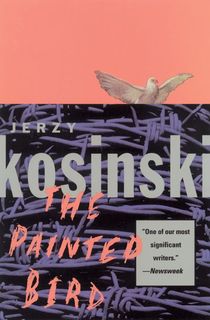
The Painted Bird
Originally published in 1965, Jerzy Kosinski’s acclaimed novel chronicles the harrowing experiences of a nameless young boy compelled to fend for himself after he is abandoned deep in the Polish countryside at the start of World War II. The local people are suspicious of this new arrival, whose swarthy dark-eyed appearance instantly marks him out as a stranger. As a result, the youngster endures a miserable nomadic resistance, subject to rejection, abuse and even torture as he moves from village to village.
Notable for its remarkably graphic and vivid imagery, Pulitzer Prize-winning critic, Jonathan Yardley, described this bleak masterpiece as “a magnificent work of art and a celebration of the individual will” (Miami Herald).

Life After Life
This highly imaginative and darkly comic novel chronicles the many lives of Ursula Todd. The daughter of an English banker and his wife, Ursula is born for the first time in 1910 only to die the following day. Thereafter she is reincarnated on several occasions, living multiple lives over different timelines. Eventually she finds herself at the heart of the action in Nazi Germany on the eve of World War II. Can she use what she has learned over her multiple lives to save herself, her family and the world?
(If you like Life After Life, be sure to read its sequel of sorts, which tells the story of Ursula’s younger brother, Teddy, A God in Ruins.)
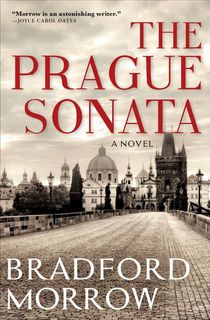
The Prague Sonata
This “enthralling epic quest of a novel” (Minneapolis StarTribune) has at its heart the fate of a priceless 18th-century musical manuscript. The mysterious piano sonata has been attributed to some of classical music’s biggest names including Mozart and Beethoven, but the composer’s true identity remains a mystery.
Having inherited the manuscript from her father, Otylie Bartosova is its guardian at the time of the 1939 German invasion of Czechoslovakia. Concerned that it will be requisitioned by the Nazis, she decides to divide the manuscript between three people. Over six decades later, one piece falls into the hands of Meta, a young New York musicologist. She takes up the challenge of finding the other two missing pieces and discovering the truth about the composition.
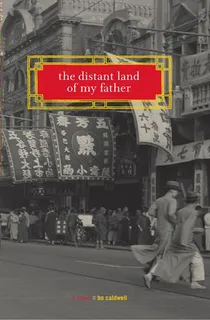
The Distant Land of My Father
This riveting fictional memoir of enduring family love in the face of tragedy and misunderstanding centers around the broken relationship of the book’s narrator, Anna, with her estranged father.
The daughter of a wealthy American businessman, Anna enjoys an apparently idyllic childhood in pre-war Shanghai until the terrible events at Pearl Harbor tear her world apart. She and her mother flee to Los Angeles, but her father chooses to stay behind and subsequently experiences a spectacular fall from grace. Anna is only finally able to make sense of her father’s behavior when, much later on in life, she discovers his personal journals.
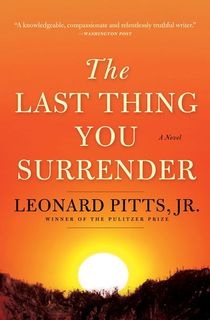
The Last Thing You Surrender
George Simon and Eric Gordy were both raised in America’s Deep South and serve on the same ship during World War II, but that is where their similarities end. The two men come from entirely different family backgrounds. Simon’s father is a prominent white lawyer, whereas Gordy’s wife and brother-in-law are still haunted by a horrific childhood experience when they witnessed the brutal lynchings of their parents in a racially motivated attack. Yet, a meaningful connection is forged between the two families after Gordy dies rescuing Simon at Pearl Harbor.
Leonard Pitts explores whether it is really possible for deeply entrenched attitudes towards racial and social justice to be transformed during times of crisis in this “compelling tale of America at war – overseas, at home and within ourselves” (Booklist).
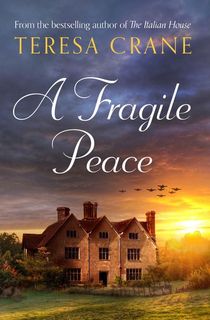
A Fragile Peace
The affluent Jordan family’s once peaceful and orderly life is shattered by events at home and further afield during the World War II years. Only the rebellious youngest daughter, Alli, initially carries on much as before, enjoying a life of fast cars, jazz clubs and dubious acquaintances, until she unexpectedly falls in love with an RAF pilot.
Teresa Crane’s tale of love, tragedy and hope in the face of war will appeal to fans of riveting family sagas, as well as those who enjoy fiction set on the 1940s English home front.
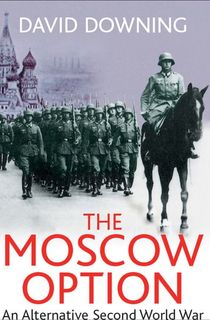
The Moscow Option
David Downing successfully blends historical fact and plausible conjecture to produce this intriguing alternative World War II history. Taking the story through to the end of 1942, he imagines what might have happened if the German plan to capture Moscow in 1941 had proved successful.
Downing outlines the fictional events in the style of a military historian, with detailed descriptions of battles and strategic operations that never actually happened, to provide a chilling insight into what might have been a very different outcome to World War II.

Catch-22
Heller’s novel follows the bombadier Yossarian as he struggles to find a way to get out of flying suicide missions in Italy during WWII. The “Catch-22” is, if you’re willing to fly these missions, you’re insane—but if you make the request to be removed from duty, then you must be sane, and therefore eligible to fly. This now classic novel perfectly captures the terrifying absurdity of war, through Heller’s deft use of humor and dialogue to prove a deadly serious point.

Slaughterhouse Five
While fighting in Germany during WWII, Kurt Vonnegut was captured and held prisoner, becoming witness to the bombing of Dresden in February 1945, which killed over 23,000 people. His 1969 novel follows the story of the naïve Billy Pilgrim, as he navigates the fog of war, inspired by true stories from Vonnegut’s harrowing experience, Slaughterhouse Five is perhaps one of (if not the greatest) anti-war novels ever written.

Suite Française
Similar in plot to Kristin Hannah’s The Nightingale, Irène Némirovksy’s novel Suite Française came first. The book, which tells a series of vignettes of life in France during the war, including a French woman’s love affair with the Nazi who invades her home during requisition, was found amongst her papers by her daughters decades after she had written it. Némirovksy never had the chance to finish the book, much less publish it, as she was murdered by the Nazis at Auschwitz at the age of 39.
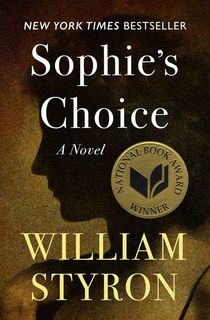
Sophie's Choice
Styron’s 1979 novel was inspired in part by a horrific story included in Hannah Arendt’s Eichmann in Jerusalem. But its general themes are more about life post-war, and the seeming impossibility of moving on from being a witness to absolute evil—or, in Sophie’s choice, a victim of total and absolute evil.
Despite the fact that the book was published 34 years after the end of WWII, its devastating portrayal of the Holocaust was controversial because of its focus on the event as seen through the eyes of one woman.
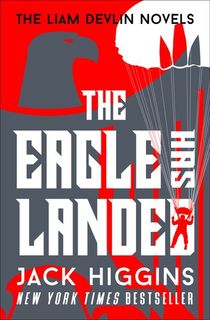
The Eagle Has Landed
This classic 1975 espionage thriller revolves around an audacious top-level German plot to kidnap Winston Churchill on British soil. In 1943, Britain’s wartime Prime Minister prepares to visit an isolated cottage in a remote Norfolk village for a quiet weekend.
Unbeknown to him, German paratroopers have landed in East Anglia and are about to team up with Liam Devlin, a ruthless Irish revolutionary who has been recruited to assist them in their mission. When the villagers discover the true identities of the strangers in their midst, only they can prevent the unthinkable from happening.

The Reader
This German novel about one boy’s sexual awakening takes a very different turn when he learns the true identity of his older lover, Hanna.
As the critic Ruth Franklin has pointed out, poet and playwright Bertold Brecht called the German generation after WWII the “Nachgeborenen,” or literally, “those who came after.” Through the relationship of Hanna and Michael, Schlink captures the mystery and danger surrounding identity and history in post-war Germany.

Everything Is Illuminated
Jonathan Safran Foer’s critically acclaimed debut novel follows a young man (also named Jonathan Safran Foer) who travels to Poland to search for a woman named Augustine who supposedly saved his grandfather’s life during the Holocaust.
As JSF’s journey unfolds, the history of the shetl where JSF’s mother was born, Trachimbrod, is told in a side-by-side narrative. Soon, JSF discovers the truth of what happened during the war is not so clear.

Atonement
English author Ian McEwan did copious amounts of research about the battle of Dunkirk and the London blitz to tell the story of Cecilia and Robbie, whose love affair is tragically cut short when Robbie is accused of rape by Cecilia’s misled younger sister Briony. This epic saga, about love, war, and the stories we tell ourselves in order to get through the day is an incredible love letter to the importance of history, and more importantly, literature.

All the Light We Cannot See
Winner of the 2016 Pulitzer Prize for Literature, All the Light We Cannot See tells the story of a love affair between a French girl and a German boy whose paths collide in occupied France. One of the most acclaimed novels of the last ten years, the novel plays on the human hope for goodness despite the nefarious confines of war and conflict.

Closely Watched Trains
Czech writer Bohumil Hrabal’s novel about a young man who works in a train station in German-occupied Czechoslovakia is a masterpiece of postwar fiction. The brief but brilliant 85-page novel was adapted into a film in 1967 that went on to win the Academy Award for Best Foreign Film. Hrabal, who is considered by most Czechs to be the best writer of the 20th century, is still largely unknown in America, and only a handful of his novels have been translated into English.
(If you like Closely Watched Trains, be sure to read his other books, I Served the King of England and Too Loud a Solitude.)

Austerlitz
It’s nearly impossible to summarize the plot of the life-changing novel that is Austerlitz, by German author W.G. Sebald. Published in 2001, it follows the exploits of an architectural historian named Austerlitz, who travels to Antwerp to meet a friend.
Eventually we begin to understand that the friend was part of the kindertransport, the operation that saved children from the Nazi regime by bringing them to live with new families—in this case, in Wales. As Austerlitz and his friend travel through Europe, he recounts (and discovers) what became of his family during the war and of European civilization, through the ruins of libraries, theaters, and entire cities.


.jpg?w=640)









